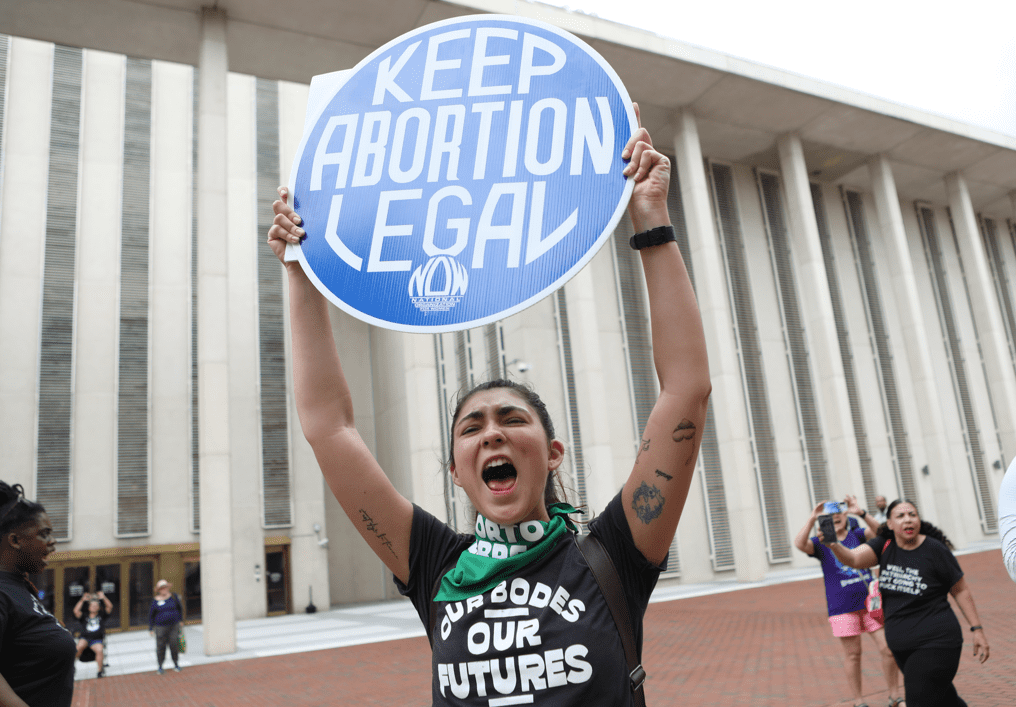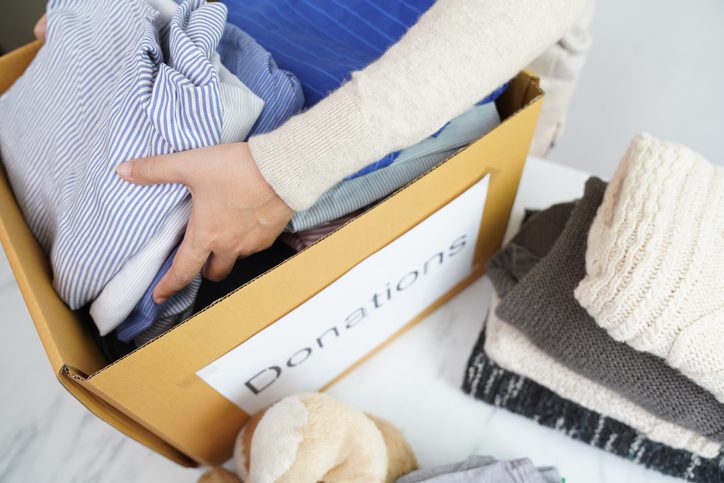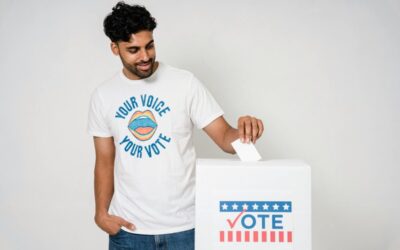
Image via Getty Images
The decision clears the amendment’s path to appearing on the November ballot, when Florida voters will decide if abortion rights will be enshrined in the state’s Constitution.
The Florida Supreme Court on Monday issued a ruling upholding Gov. Ron DeSantis 15-week abortion ban–allowing a more recent six-week ban to take effect in 30 days–while also approving a proposed ballot amendment that would enshrine abortion protections in the state constitution.
The pair of decisions means abortion rights could take center stage in Florida’s 2024 elections, as voters will ultimately have the final say on whether abortion should be banned after six weeks (with exceptions for rape, incest, and the life of the mother), or legal until about 24 weeks.
The court had until April 1st to decide if the amendment proposed by Floridians Protecting Freedom (FPF) would be on the ballot in November.
Amendment four amends the state constitution to “limit government interference with abortion,” and states that no law should “prohibit, penalize, delay or restrict abortion “in early pregnancy, which is before the fetus can survive outside the womb, or when necessary to protect the patient’s health, which would be determined by the patient’s doctor.”
The amendment protects abortion rights in Florida until “viability,” which the court’s decision acknowledged is understood to mean the point at which the fetus is viable outside the uterus, which is usually around 24 weeks.
Florida Attorney General Ashley Moody argued that the language of the initiative would “mislead voters,” saying that the term “viability” can have more than one meaning, but the Republican-dominated court disagreed.
Now that it has been approved for the ballot, the amendment will need 60% of voters to support it to pass and protect abortion rights under the state constitution.
‘Outrageous and Dangerous’
The Court’s decision on DeSantis’ six-week abortion ban immediately drew sharp criticism, as the ban will result in felony charges for “any person who willfully performs or actively participates in a termination of pregnancy” after the six-week mark.
“The Supreme Court’s decision to endanger the lives of millions of women in Florida by banning abortion before most women know they’re pregnant is outrageous and dangerous,” said Debbie Mucarsel-Powell, the former Democratic representative who is running to unseat Sen. Rick Scott in November. “It has never been more important for us to show up this November to put an end to government interference, vote to protect abortion rights in Florida.”
RELATED: Inside Rick Scott’s ‘toxic record on abortion’
“The Supreme Court’s decision to endanger the lives of millions of women in Florida by banning abortion before most women know they’re pregnant is outrageous and dangerous,” said Debbie Mucarsel-Powell, the former Democratic representative who is running to unseat Sen. Rick Scott in November. “It has never been more important for us to show up this November to put an end to government interference, vote to protect abortion rights in Florida.”
Defending a woman’s choice
The Floridians Protecting Freedom (FPF) campaign to put abortion on the ballot came about after Gov. Ron DeSantis signed a bill last year to ban most abortions after six weeks of pregnancy.
Pro-choice advocates warn that DeSantis’ six-week ban will disproportionately hurt Latinas in Florida. That is because Florida is home to 1.4 million Latinas of reproductive age, and of this population 558,000 are economically insecure.
Following the court’s upholding of DeSantis’ abortion ban, reproductive rights advocates are ready to make sure the amendment passes.
“We’re pivoting directly into getting out the vote to support our amendment and enshrine abortion rights in the Florida constitution,” Anna Hochkammer of Florida Women’s Freedom Coalition, said in a statement. “The momentum is on our side. And if we’re successful, women in Florida will never again have to wonder whether politicians are going to interfere with the right to make their own medical decisions.”
RELATED: Maria Elvira Salazar’s history of opposing abortion rights
Support Our Cause
Thank you for taking the time to read our work. Before you go, we hope you'll consider supporting our values-driven journalism, which has always strived to make clear what's really at stake for Floridians and our future.
Since day one, our goal here at Floricua has always been to empower people across the state with fact-based news and information. We believe that when people are armed with knowledge about what's happening in their local, state, and federal governments—including who is working on their behalf and who is actively trying to block efforts aimed at improving the daily lives of Florida families—they will be inspired to become civically engaged.


People are leaving states with abortion bans, according to study
A new analysis from the National Bureau of Economic Research found that since 2022, states with near-total abortion bans appear to have lost 36,000...

The fight for reproductive justice in Florida is ‘not over,’ say advocates
"We're going to ensure that our voices are heard," says Charo Valero of the National Latina Institute for Reproductive Justice, who spoke with...

5 places in Florida to donate clothes, shoes, and more
Decluttering your home can provide such a satisfying feeling of accomplishment. After sorting through all of your belongings and determining what...

8 Orlando hotels that pack as much fun as the theme parks
With waterslides, family arcades, playgrounds for the kids, and spas for mom and dad, these Orlando hotels will make your vacation unforgettable!...




